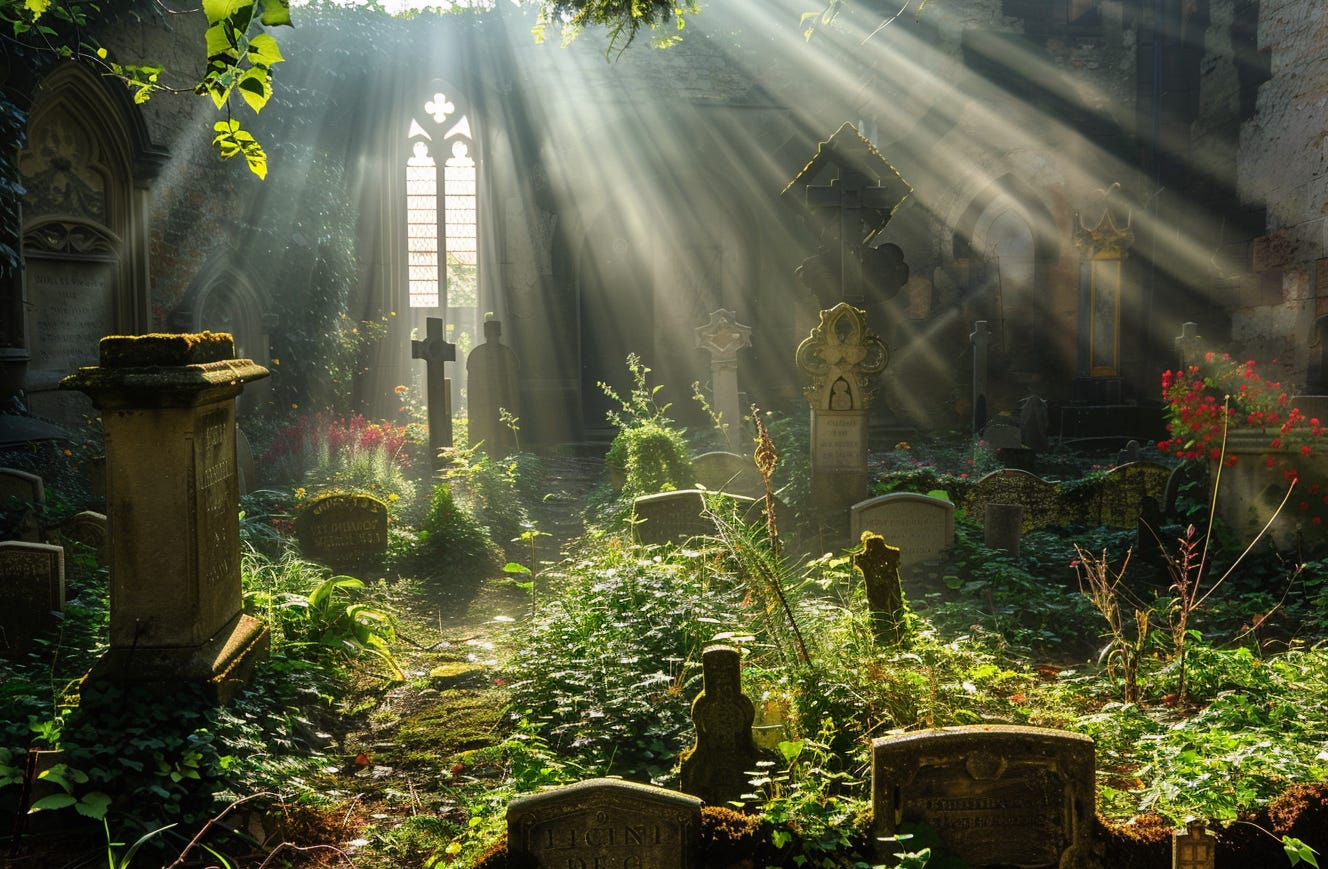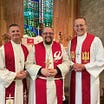But someone will ask, “How are the dead raised? With what kind of body do they come?” You foolish person! What you sow does not come to life unless it dies. And what you sow is not the body that is to be, but a bare kernel, perhaps of wheat or of some other grain. But God gives it a body as he has chosen, and to each kind of seed its own body (1 Corinthians 15:35 – 38).
When you think of a graveyard, what sort of feelings and images come to mind? It’s usually pictured as a dark and gloomy place, a place filled with tears and sadness. But what if I told you that the Church has historically viewed the graveyard as God’s garden? For there are the bodies of His saints sown, waiting His call, and when He calls they will break forth and blossom, not into some sort of flower, but into a body that will never know corruption. But graveyards across the nation are filling up, and purchasing a plot is, like so many things these days, becoming more and more expensive. This, among other factors, has lead to a rise in cremation. So, how should a Christian view cremation? Is it something that should be avoided? If not, how should it be dealt with? Let’s work through some of these questions today.
So, should a Christian practice cremation? The simple answer is no. Why? Because the burial of the body best confesses, “I believe in the resurrection of the body.” Cremation itself, with the scattering of the ashes, is a pagan practice that does not confess the resurrection of the dead. It’s the demonic antithesis to the resurrection, daring God to put this body back together after it has been scattered to the winds. Yes, God CAN resurrect that body, and He will. However, the action itself, especially of scattering the ashes, is a bad confession.
Now, before you get out your pitchforks, tar, and feathers, let me continue. Sadly, our world is not a perfect place. Burial costs, as was stated above, continue to rise. Sometimes there is no way to have a standard burial without bankrupting the family that remains behind. In this situation, cremation is a regrettable alternative. However, the body should not be cremated until after the funeral. Many funeral homes will ‘rent’ out caskets for such a service, and then perform the cremation after the service. This allows the loved ones a much needed chance for closure and grieving. Then, upon reception of the cremains, they should be buried, as we have buried the bodies of those who have gone before us. To be sown into the ground as seeds to be raised up on the last day.
And then there is the case where the body is too damaged, and has to be cremated, as was the case for many firefighters who give their lives saving people in deadly fires. We grieve with the family, especially because they lose the chance for closure. Again, the cremains are to be treated with the same respect as the body of the departed saint in Christ, and buried to await the resurrection. Dividing the cremains among the family or scattering them on the ground/on the water/to the wind is not proper treatment. Jesus died and was buried, and then He rose from the dead. This is our confession too when we bury our dead, that one day God’s garden will bloom. So let even our deaths be a confession of Jesus Christ. One last confession, to those that you love. In Jesus’ name, Amen.






